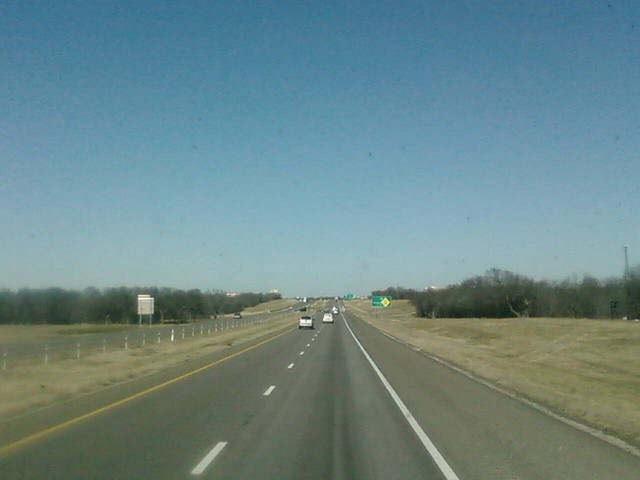Talking to Robert Langellier about “The Long Haul” and Paying Off His Student Loans

Many of you probably read Robert Langellier’s The Long Haul: One Year of Solitude on America’s Highways on Esquire last week, and some of you might have participated in our Billfold discussion about the essay.
Langellier wrote about working as a long-haul trucker to pay off his student loans, but he didn’t list how much he earned as a trucker or how much of his paycheck went directly towards loan repayment. So I emailed him and asked if he’d be interested in sharing those details with The Billfold.
He was happy to share, and the following is a lightly-edited version of our conversation:
ND: I loved your Esquire piece, and I started thinking about the math involved. I was curious how much you made during that time, how much you put towards your student loans, and how much you kept for yourself.
RL: I rough-calculated this morning. I think I made between $55,000 and $60,000 in thirteen months, before taxes. So shave off about 25 percent of that.
I had basically no living expenses, since I wasn’t paying rent, I don’t have a car or anything, and I was only a few months out of college. So I was making about—well, everything is divided into the first company and the second company I worked for. I made a lot more with the second company.
But I was making about $1,000 before taxes, $800 after taxes, per week. About $700 of that went to my loans. Almost all of it.
I had about $24,500 in loans. $15,000 was from federal loans. $9,500 was a loan from my parents. I had done a study abroad when I was an undergraduate, and they paid for that.
They also paid for my trucking school, which was $3,500. If you add all that together, the unofficial parental loan to the federal loans, it’s about $24,500.
I earned $2,000 working in restaurants after I graduated, so I only had $22,500 left to go. I started in October 2014, and I paid it all off by mid-April. So… about five and a half months.
That’s great. That’s really great!
Yeah. It’s… yeah! [Laughs.]
So then your expenses while you were working for the two trucking companies: you were buying your own food?
Yes.
But you weren’t paying for any lodging.
No, you drive a truck, and the truck has a bed in it, so you sleep in the truck. You don’t own the truck, the company—well, they don’t even own it, they lease it from the truck manufacturer, and then they let you drive it. A lot of truck drivers will get hotels, but I’m 24, I don’t need a hotel. No expenses.
Until I had my loans paid off, those first six months, I was fairly stingy on finances. I didn’t spend much, because I was really determined to pay those loans off. After I had the loans paid off, I kept driving for about five or six more months, and I just started blowing money. Whenever I saw something that I wanted, I would just buy it. I went out to eat a ton. I would take vacations more frequently, I wouldn’t drive as hard, and I would just blow cash wherever I went. So it really changed at about the midpoint, how I treated my finances.
Would you advise someone else to do what you did? Do you think it’s a great way to pay down student debt?
My friend Brian is doing it, actually! He graduated a year after I did, so just this past spring, on his Spring Break, he hopped on the truck with me for a week and I took him around and showed him what truck driving was like. He thought it was awesome. I definitely do recommend it.
As you can guess from my story, I kinda burned out after a while. My opinion of the industry is that it’s not really well set up for the drivers, and it’s not something that’s sustainable for a long period of time.
There was this short period of time where I was stoked, because it was this new thing and I was excited, and there was about a month where I actually had to do it, but I didn’t know what I was doing, so I was uncomfortable. Then there was about a six-month honeymoon phase where I was like “I’m a truck driver, and that’s awesome!” And then it started to decline a little bit.
Once I had made about $17,000 in the bank, I figured “I’m good.” More money at that point was abstract to me. So I shut it down.
Well, I’m very excited to see what you do next—and thank you for sharing your finances with The Billfold!
Support The Billfold
The Billfold continues to exist thanks to support from our readers. Help us continue to do our work by making a monthly pledge on Patreon or a one-time-only contribution through PayPal.
Comments